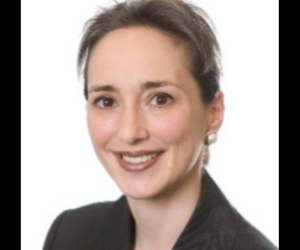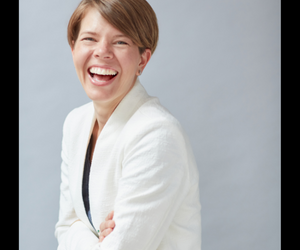Premenopausal Women With Low Bone Density
LOW BONE DENSITY CAN OCCUR IN PREMENOPAUSAL WOMEN
Although osteoporosis is mostly a disease of older women, under certain circumstances, premenopausal women may also be vulnerable. There are disease states and medications that cause low bone density in premenopausal women. These including: celiac disease, cystic fibrosis, rheumatoid arthritis, epilepsy, eating disorders, and any disease with increased inflammation. In addition certain lifestyle habits may contribute to or exacerbate premenopausal bone loss; such as smoking, excessive drinking, inadequate calcium and vitamin D, and insufficient exercise. Some cases are genetic. In others, the cells that form new bones do not function well. Fractures can also affect women in the third trimester of pregnancy or during breastfeeding. In other cases, we just don’t know the cause.
TESTING FOR LOW BONE DENSITY IN PREMENOPAUSAL WOMEN
In most cases, we discourage premenopausal women from having bone density exams. For one thing, it’s difficult to interpret the results in a younger woman. She may be at the lower end of the bell-shaped curve, but that doesn’t mean a woman is at short-term risk for fractures. Further, a thin, petite woman may have a falsely low reading because the scan is two-dimensional, capturing height and width, but not the depth of a bone. Also, small women don’t need large bones because their bones are not bearing a lot of weight. On the other hand, there are situations in which measuring bone density is highly appropriate.
Bone density scans are to be performed if a premenopausal woman has a disease known to have a bad effect on the skeleton. It should also be performed if she’s had a fracture that’s not easily explained by the degree of trauma; a low-trauma fracture. A low-trauma fracture is defined as one that occurs with trauma equivalent to a fall from standing height or less. For example, a woman who breaks a bone after a fall on a sidewalk. This is in contrast to a high-trauma fracture that comes from falling down a flight of stairs or a motor vehicle accident.
CASES WHERE A MEDICAL EVALUATION IS NECESSARY
In cases where there is an unexplained broken bone, and low bone density is found on a bone density scan, it is very important do a thorough medical evaluation to make sure that there isn’t a treatable underlying cause. Celiac disease, for example, can be asymptomatic and may only present with fractures. Diagnosing an unsuspected underlying disease, such as asymptomatic celiac disease, and treating it specifically is much more effective than treating the low bone density itself. If a woman has celiac disease, it is usually much more effective to put her on a gluten-free diet than to give her medications to increase bone density.
LIFESTYLE APPROACHES TO TREATING LOW BONE DENSITY
If an individual has low bone density but no fractures, I usually recommend some lifestyle changes along with observation rather than medications. Lifestyle changes that may help prevent fractures and improve bone density include: quitting smoking, reducing or eliminating alcohol use, and engaging in plenty of weight-bearing exercise, such as walking, jogging, running, dancing, or using an elliptical machine. Interestingly, lifting weights doesn’t have a large effect on bone density, even though it’s a good thing to do for other reasons.
The individual should make sure she’s getting adequate calcium and vitamin D, preferably from her diet. WebMD has useful information on sources of dietary Vitamin D and calcium, http://www.webmd.com/food-recipes/guide/calcium-vitamin-d-foods. However, too much calcium could be harmful. She should make sure that the total between diet and supplements is not much more than 1000 mg per day. Similarly, too much Vitamin D can also be harmful. I usually recommend 1000 IU daily and then adjust to maintain the blood level at around 30 ng/ml.
BE CAUTIOUS ABOUT PRESCRIBING MEDICATIONS FOR LOW BONE DENSITY
Prescribing medications for childbearing-age women with low bone density is complicated. Some medications can cross the placenta. Biophosphonates are a Category C drug, meaning they should be avoided in pregnancy. Teriparatide and denosumab should not be used during pregnancy. To further complicate the issue; bisphosphonates may persist in the bones long after the patient is no longer taking them. They can even still cross the placenta after being discontinued. A woman of childbearing age should agree to use contraception if it is medically necessary to treat her low bone density pharmacologically.
Search Articles
Latest Articles
Are China’s children winning the AI race?
https://www.washingtonexaminer.com/restoring-america/courage-strength-optimism/3421584/are-chinas-children-winning-the-ai-race/ Publication –washingtonexaminer.com
Fighting Lies with Truth: Portraits of Ukraine and the War on Disinformation
https://foreignpress.org/journalism-resources/fighting-lies-with-truth-portraits-of-ukraine-and-the-war-on-disinformation Publication –foreignpress.org
Defusing Despair, One Inch at a Time
https://foreignpress.org/journalism-resources/defusing-despair-one-inch-at-a-time Publication –foreignpress.org
Clear It and They Will Come: Transforming Minefields into Fields of Hope
https://foreignpress.org/journalism-resources/clear-it-and-they-will-come-transforming-minefields-into-fields-of-hope Publication –foreignpress.org
Subscribe to Updates
About Author

Mitzi Perdue is the widow of the poultry magnate, Frank Perdue. She’s the author of How To Make Your Family Business Last and 52 Tips to Combat Human Trafficking. Contact her at www.MitziPerdue.com
All Articles
Learn How to Turn Adversity Into Opportunity
Learn How to Turn Adversity Into Opportunity“Use adversity as a bridge to your destiny.” Those are nice words to live by, especially if it works and your destiny turns out to be fulfilling and rewarding. People probably view Mark Victor Hansen’s destiny as a...
When it Comes to Vendors and Services, Size Matters
When it Comes to Vendors and Services, Size MattersWhen you’re evaluating outside vendors or services for your family office clients, is the size of the company you’re looking at one of your important considerations? It was a crucial screen for my late husband, Frank...
Shifting to a High-Functioning Family
Shifting to a High-Functioning FamilyYou’ve heard of a Tale of Two Cities by Dickens, right? Today’s topic is a Tale of Two Families and the person who can tell the story is Steve Legler, a family business speaker, author, and advisor. The two families he has in mind...
Are You Paying Attention to Both Parts of Succession Planning?
Are You Paying Attention to Both Parts of Succession Planning?There are two major components of family business succession, but all too often family business owners focus on only one. The result is missed opportunities and the potential for family dysfunction. The two...
Your Family’s Greatest Heirloom
Your Family’s Greatest Heirloom“There’s nothing greater you can give your family than this,” says Jamie Yuenger, founder of StoryKeep. “Provide those who come after you with the tools for personal, emotional, and spiritual success.” The way to do this, she believes,...
Want your family business to last ? Five tips for getting there.
Want your family business to last ? Five tips for getting there. View ArticleSearch ArticlesLatest ArticlesSubscribe to UpdatesAbout AuthorMitzi Perdue is the widow of the poultry magnate, Frank Perdue. She’s the author of How To Make Your Family Business Last and 52...






